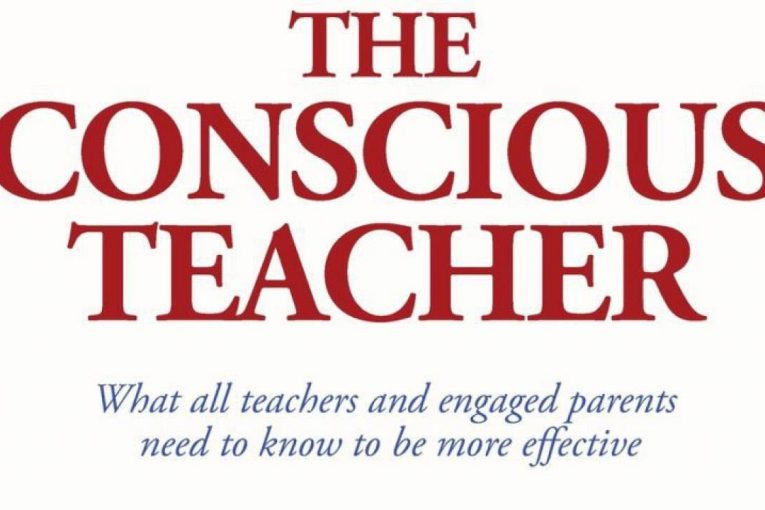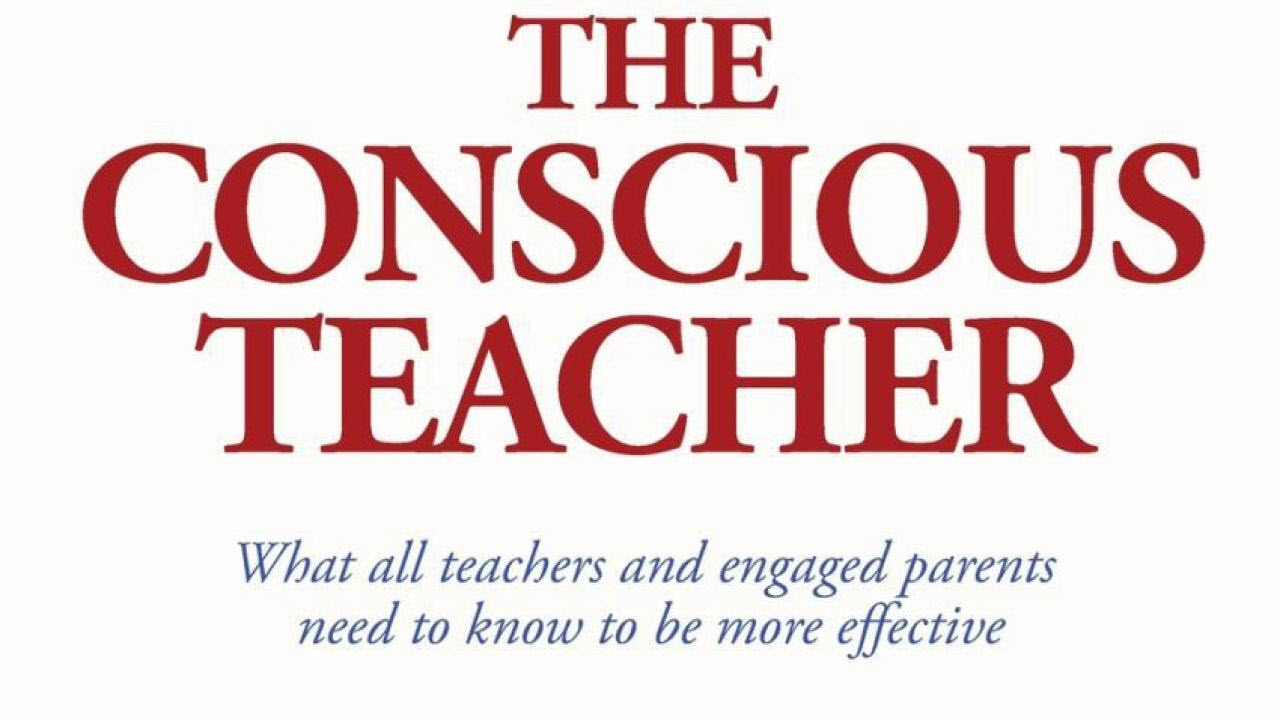

Editor’s note: Deborah Nichols Poulos was a long-time teacher in Davis. She also served a term as City Councilmember. In 2006, she was diagnosed with ALS. She has come out with a book entitled, “The Conscious Teacher” and here she discusses the book and her challenges.
In this time of Covid-19, The Conscious Teacher, a new book, by Deborah Nichols Poulos, is a “must have” for parents. The subtitle is, “What all teachers and engaged parents need to know to be more effective.” Almost every chapter has notes directed to parents. With the importance of staying calm, putting the child in charge, behavior standards, meeting each child at her level, creating self-motivation, differentiating and individualizing, and ideas on subject area teaching, The Conscious Teacher hits the spot. Parents will be glad to have its help and support.
Written primarily for teachers, in an accessible, conversational style, it offers unique perspectives on how teachers can more effectively teach and how students can more effectively learn. It explores the topics mentioned above, as well as many more. The Table of Contents provides a roadmap to all the information in the book. She explains how to get to know each student before the first day of school, and why this is so important to their becoming engaged in learning.
Drawing on her 27 years of teaching grades one through six, including eight years in a self-contained fourth grade gifted class, Deborah outlines how she developed her own uniquely effective strategies based, in part, on her own struggles learning to read and do math. She was reading about that in her memoir class when they stopped her. “Debbie, this is too important just for your  memoir. You have to stop and write a book about it before it’s too late.”
memoir. You have to stop and write a book about it before it’s too late.”
She was excited to hear their enthusiasm, but saying, “Before its too late,” really gave her pause. They were right. She had retired in 2000, at age 55, due to being diagnosed with an incurable neuromuscular illness. Then she was diagnosed with ALS in 2006. She stopped right then and began this book.
It is a compelling up-close and personal look at how she became a truly conscious teacher, and offers a roadmap to help both teachers and parents to do the same.
Deborah taught most of her career in Davis, California. Through her writing, her love of both teaching and children continues to shine. Deborah, who still resides in Davis, is excited to share her new book with teachers and parents.
What is the conscious teacher?
A conscious teacher doesn’t just go through the motions of following what was taught in teacher ed classes. She has to develop her own strategies that involve truly being conscious of what students need to be successful learners. She gets to know each student before they even walk into class on that first day. I went through all my students’ cumulative record folders, CUMs, before school started. I learned about all their school history, issues at home, etc. I memorized the students’ names from their photos. On the first day of school I’d line them up at the door to the classroom and welcome them by name. It was awesome to see the expressions on their faces. I think they thought, “I’m important to her.” This conveyed a powerful message. They came into the classroom to find their desk with their nametag on it. Their first job was to personalize their nametags w/ their set of colorful marking pens.
I placed students who might need help next to students who could help them. I seated students who had behavior issues near the front of the class next to students who could buffer them. The students became a team that helped and supported each other.
It’s important for every child to feel known and to be able to relax as they learn.
Why did you decide to write the book?
In 2014 I was reading my autobiography in my memoir group, about my difficulties w/ reading and math throughout elementary school, and how that influenced my teaching. They stopped me and said, “Debbie, these ideas are too important for parents and teachers not to learn now. You need to stop and write a book before it’s too late.” I was excited to hear their enthusiasm for a book, but saying, “Before it’s too late,” gave me pause.
I realized they were right. I’d been diagnosed w/ ALS (amyotrophic lateral sclerosis) – Lou Gehrig’s disease — in 2006. It is a progressive degenerative neuromuscular disease of the voluntary and involuntary motor neurons. It usually progresses quite rapidly, in just a few years, to death by suffocation when the diaphragm stops working on the lungs.
2014 was eight years after my diagnosis, so I’d already beaten the odds, so time was of the essence. I stopped right then and began work on this book. Now I hope I live long enough to see if it is widely read.
What can readers expect to learn from reading your book?
My book is part memoir part “how-to,” written in an accessible, conversational style. Whether parents or teachers, readers will learn about the importance of truly “knowing” each student; how to individualize and differentiate to meet each child at her level in order to nurture self motivation; putting her in charge of her learning; creating behavior standards and consequences when the  standards are not met—having students sign a behavior contract; treating each child with dignity and respect no matter what; to name just a few.
standards are not met—having students sign a behavior contract; treating each child with dignity and respect no matter what; to name just a few.
In this time of covid-19, THE CONSCIOUS TEACHER, is especially important for parents. The subtitle of the book is, “What all teachers and engaged parents need to know to be more effective.” Almost every chapter has notes directed to parents.. For example, parents must model the behavior they want from their child. Keep your voice calm and don’t reward bad behavior w/ attention; that’s the only way to extinguish bad behavior. Hold them to it the behavior contract. If the child needs a “time out” have him read his literature book. I explain how a child can select a book at her reading level. There is a wealth of information on all kinds of issues, with a table of contents that is detailed enough that it is easy to find what you need. Parents will be glad to have its help and support
What insights do you have about teaching that you can offer to other teachers?
I would say start getting to know each student before they even walk into class on that first day. I went through all my students’ cumulative record folders, CUMs, before school started. I learned about all their school history, issues at home, etc. I memorized the students’ names with their photos. On the first day of school I’d line them up at the door to the classroom and welcome them by name. It was awesome to see the expressions on their faces. I think they thought, “I’m important to her.” This conveyed a powerful message. They came into the classroom to find their desk with their nametag on it. Their first job was to personalize their nametags w/ their set of colorful marking pens.
I had placed students who might need help next to students who could help them. I seated students who had behavior issues near the front of the class next to students who could buffer them. The students became a team that helped and supported each other.
It’s important for every child to feel known and to be able to relax as they learn.
What was your experience like teaching in Davis?
I had varied experiences teaching in Davis. I started substituting her in 1973. I got my first fulltime job here teaching second grade at WDE. I was laid off every year for four years until I earned tenure.) The next year I was rehired to teach a 4-5 at WDI, I taught sixth grade the next year and fourth grade the next. The following fall I was hired to teach fourth grade at Valley Oak. The next year, when the gifted program expanded to the fourth grade, I was hired to teach that class. The first year it was a 4-5 combo, but the rest of the time it was fourth grade. I left the GATE program in ’91. I taught a fifth grade the following year at WDI. When Patwin opened in ’92 I moved there to teach for the next eight years. I taught fifth, 5-6, and sixth. It was then that I retired due to being diagnosed with a neuromuscular illness that was already beginning to take my ability to walk.
What are you hoping for teachers to get out of the book?
Teachers need to bring their own true selves to their teaching. Teachers need to be thinking every minute of every day about what they can do to improve the experience of each child in their care.
My book is part memoir part “how-to,” written in an accessible, conversational style. Whether parents or teachers, readers will learn about the importance of truly “knowing” each student; how to individualize and differentiate to meet each child at her level in order to nurture self motivation; putting her in charge of her learning; creating behavior standards and consequences when the standards are not met—having students sign a behavior contract; treating each child with dignity and respect no matter what; to name just a few.






